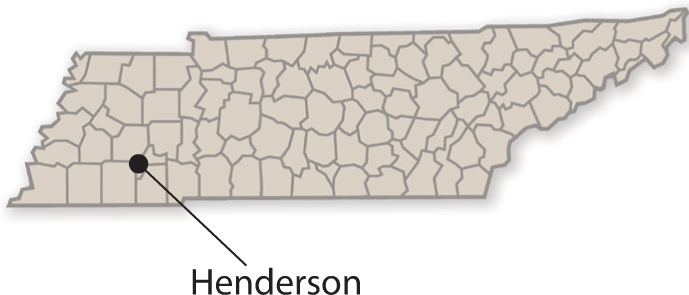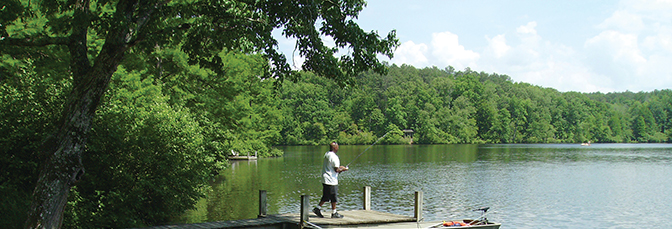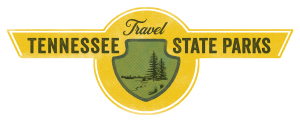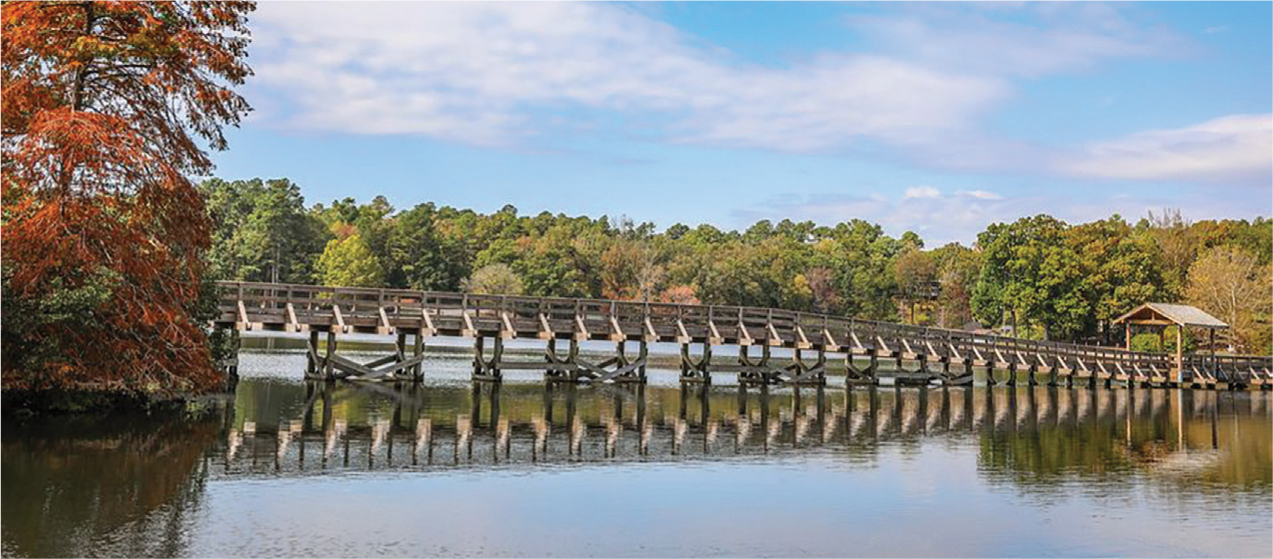Lake Placid sounds like a calming, beautiful place to spend a day, doesn’t it? That’s because it is. Of course, this Lake Placid isn’t the one in the Adirondack Mountains of New York that has twice hosted the Winter Olympics. Instead, this 54-acre gem is located in Chickasaw State Park in West Tennessee. While it might not be mountainous like the Adirondacks, the park is home to some of the highest points in the western part of the state.
As you might guess, the park is named after the Chickasaw Native American tribe because the Chickasaw people called West Tennessee and northern Mississippi home well before either of those states existed. Located along the border of Chester and Hardeman counties, the park offers a variety of activities — from paddling on its two lakes to golfing on the Jack Nicklaus-designed course to horseback riding — and much more. The amount of recreational opportunities makes it a great fall getaway for a weekend or even longer.
On the water
The aforementioned Lake Placid is one of two 54-acre lakes in the park, but Lake Placid is the more accessible as it is open to the public year-round. The boat dock, where kayaks, canoes, stand-up paddleboards (SUPs) and pedal boats can be rented, is currently closed for the season. It will reopen on Memorial Day.
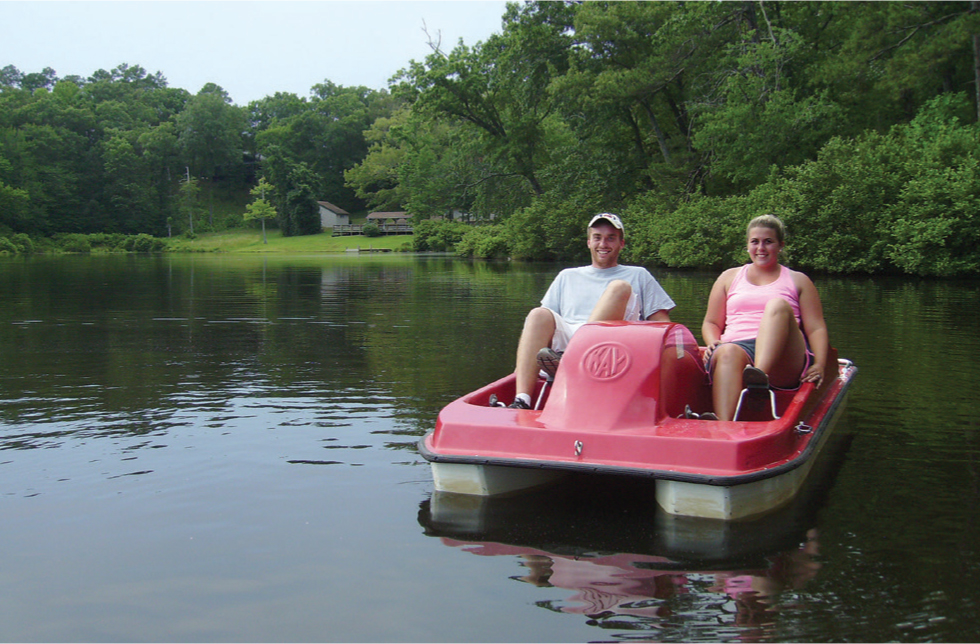
Lake LaJoie is located 8 miles away from the main part of the park, inside the Lake LaJoie Group Camp. It is only open to public use of personal kayaks and canoes when the group camp isn’t occupied. If you want to make use of this lake, you’ll need to call the park to check on its availability.
While right now the thought of swimming at Lake Placid’s sandy beach area might send a shiver down your spine, keep it in mind for when warmer weather returns. It’s a popular attraction in the park and is open seasonally.
An activity that is available on both lakes year-round is casting your fishing line in hopes of catching bass, bream or catfish. Fishing boats can be rented year-round. When the dock is closed for the season, however, those rentals take place at the park office. Personal jon boats can be used on Lake LaJoie when it’s open to the public.
On the trails
Fall is a great time to get out on some trails to enjoy the changing colors and some crisp air before that air turns frigid during the winter months. Chickasaw State Park has eight trails rated either easy or moderate, all of them less than 2 miles in length. The shortest, the 0.4-mile Public Horse Trail, begins at the wrangler campground and allows horseback riders to access the many miles of riding trails in the surrounding Chickasaw State Forest.
Beginning at the tent campground, the Owens Spring Trail passes by several natural springs that feed Lake Placid, crosses the 1930s-era fish hatchery levee and travels through both upland forest and lower-elevation wetlands.
“The park is rather hilly for West Tennessee,” says Park Manager Ron Elder, who has been at Chickasaw for 10 years. “You pass through several different ecosystems in a short distance.”
Other trails provide the opportunity to see beaver habitat, plant life such as ferns and loblolly pine trees, and the shores of both lakes. The mixed hardwood and pine forests as well as the lakes afford chances to see and hear many of the more than 100 species of birds that have been spotted here — from mallards and Canada geese on the lakes to Carolina wrens and bluebirds in the forests.
Though ATVs and bikes are not allowed on the park trails, riders can access trails in the state forest. Those extra 14,000-plus forest acres also provide hunting opportunities for locals and visitors to the area. Bicyclists can also ride on the park’s roadways.
On the course
If a round of golf is more to your liking, book a tee time at the 18-hole Jack Nicklaus Signature Design Golf Course.
Activities at the park include hikes and walks along the trails, including the Lake Shore Trail that crosses Lake Placid, above, as well as fi shing, opposite page, top, and pedal boating, bottom.
On-site education
The park, like others across the state, offers educators opportunities to take their students on field trips to the park or having ranger-led programs in their classrooms. Topics include what rangers do in their jobs, early settlers, building bat boxes, and flora- and fauna-based programs about birds of prey, snakes, trees and more.
The aviary is sure to interest young visitors. Chester and Henry, a barred owl and a red-tailed hawk, call it home. They are the stars in the birds of prey programs.
There is more information on the park’s website, including contact information for the ranger in charge of scheduling school programming.
Visitors can also learn about two historic buildings on site — the circa 1876 Brewer Cabin and Sagamore Lodge, built in 1936-1937 by the Resettlement Administration and Works Progress Administration, two New Deal programs.
On location: Park festivities
Elder says the park hosts two big annual events. Frontier Days is held in October and highlights the area’s history of human occupation from the Native peoples to early European-descent settlers. The weekend is filled with period-appropriate competitions and demonstrations.
Mark your calendars to enjoy the Lighting of the Park next month.
“We light the roadways with candles and decorate the park with I don’t know how many lights,” Elder says. “It’s a 5-mile drive through the displays.”
The event is just one of the reasons that Elder says this park, where he has spent most of his career, is “a very neat park, very family-friendly.”
Chickasaw State Park
For more information, visit Chickasaw State Park’s website at tnstateparks.com/parks/ chickasaw or call the park office at 731-989-5141.
